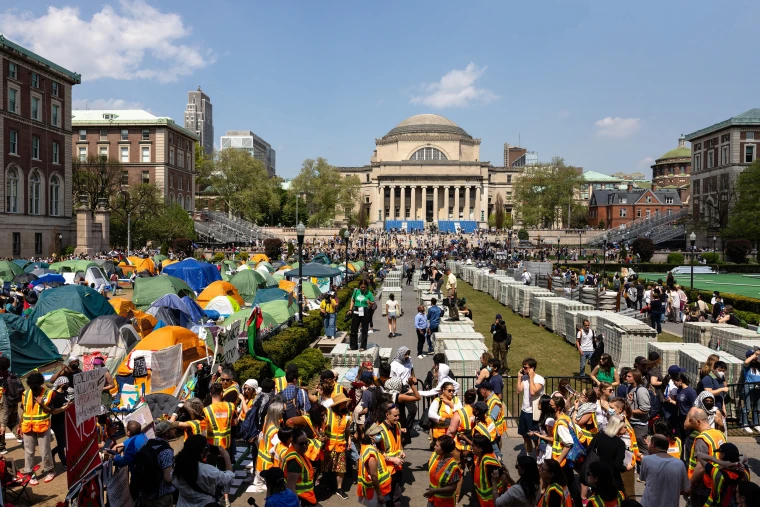Police forcefully dispersed pro-Palestine protesters from Columbia University on Tuesday night, ending the occupation of an administration building and arresting pro-Palestine protesters involved.
University officials, who had faced criticism for their handling of the protests, requested police intervention as protesters broke windows to enter the building and fortified entrances with furniture and equipment to keep officials out.
The move by law enforcement came amidst concerns of escalating communal tensions, as reports emerged of attacks and threats against Jewish students based on their religion. One protest leader was found to have advocated for "death to Zionists."
Prior to the police action, New York City Mayor Eric Adams identified "professional agitators," not affiliated with the university, as instigators behind the occupation.
Police released footage identifying individuals, dressed in black, as "outside agitators" who had previously been involved in protests, aiming to incite clashes with law enforcement.
According to CBS New York, city officials alleged the presence of the wife of a known terrorist at the protests. Other media outlets identified the individual as Sami Al-Arian, previously charged with supporting the Palestinian Islamic Jihad and deported from the US.
Riot police used specialized equipment, including ramps to access higher floors, and employed flash grenades designed to disorient but not cause physical harm to the agitators.
In addition to clearing the administration building, police arrested students who had set up tents on the university quadrangle, an act in defiance of university orders.
Clashes between police and protesters also occurred at the campus of local government-run City College, where agitators threw firecrackers, resulting in several arrests.

The pro-Palestine protests, which originated at Columbia University with tent encampments, have since spread to numerous campuses nationwide.
Demands include a Gaza ceasefire, an end to US support for Israel, and universities severing ties and investments with Israel-related entities.
Scores of students and faculty have been arrested during the protests, with some encounters turning violent. The disruptions have prompted universities to transition to remote learning, affecting students in the final weeks of the academic year.
Republican leaders, led by Speaker of the House Mike Johnson, have called for decisive action by university administrations and suggested deploying the National Guard.
Johnson, who visited Columbia University last week, demanded the resignation of University President Nemat Minouche Shafik, citing her handling of the protests.
Shafik, who assumed the role last year after leading the London School of Economics, previously called in police to disband the tent encampment, but demonstrators returned within a day.
Despite attempts at dialogue, the situation escalated when protesters took over the administration building after a deadline to dismantle the encampment passed on Monday afternoon.


